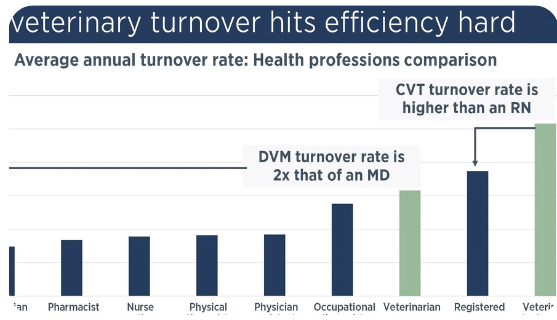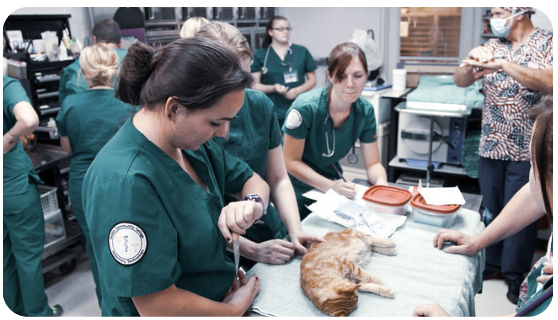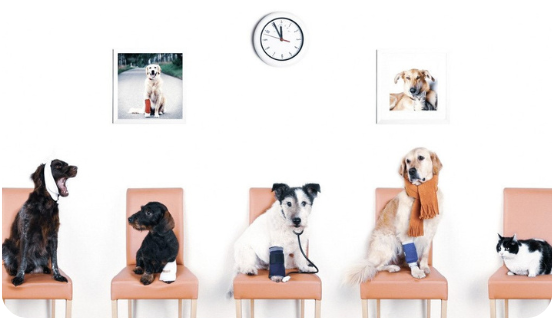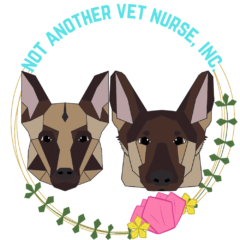
1. What are your core values?
Core values really define a practice. Consider them the GPS of the hospital’s potential practice. They help guide the veterinary team on achieving their hospital’s goals consistently while remaining in line with the vision of the practice and the owner. They also serve as a foundation for staff accountability. Making this an extremely important question to pose during your interview as you want to find a clinic that has values that mirror your own. This question will allow you to find a clinic that is the right fit for you and will compliment your skill set!

2. What is your turnover rate? If so, why?
This question is crucial as burnout and stress are (quite literally) the most common side effects of this profession as it is intensely emotional. This may be one of the most important factors contributing to the high amount of staff turnover within the veterinary industry as a whole. This is more prevalent in smaller clinics and rescues, as most of the staff members are expected to wear many different hats which causes you to not only need to perform your own job, but also 4 other ones simultaneously with zero complaining. Having such a high expectancy can be extremely exhausting both mentally and physically to all veterinary professionals, which causes them to leave the practice thus causing high turnover rates. If a clinic is telling you an extremely low number of turnover rates, it’s highly possible that this is not true, and you should proceed with caution as low turnover rates are not the norm.

3. Do you offer sick, vacation and mental health days?
For some context, the veterinary field averages 13 days of vacation and holidays with little to no sick time. Having said that this often results in a very sick, and tired team which then makes everyone else sick and miserable. Then suddenly you are out 5 team members when you could’ve only been out 2 and we all know how being shorthanded adds to mounting tension in hospitals and creates an even more stressed environment. Keep in mind that PTO tends to mean something different to each clinic. In many cases, it includes vacation and holidays, while in others, it includes vacation, holidays, and sick pay. It is vital that you inquire about all these types of PTO but- it is most important to ask about sick and mental health days as those are the ones that you will need the most in this industry. Do not feel ashamed or embarrassed to ask about these, they are vital to keeping you both physically and mentally well enough to come to work thus creating more revenue for the hospital and saving more animals.

4. How does your clinic schedule appointments? Do you prioritize team capacity over revenue?
This question will give you not only an insight to how the clinic functions, but how it triages & prioritizes clientele over the wellbeing of their staff. There are a few different ways clinics schedule appointments- some will try to create categories for time-specified scheduling, or some will have a flow scheduling system. Flow scheduling is a strategy that details how long an appointment would usually take, depending on the nature of the issue. This tactic is great for minimizing waiting time and maintaining a steady flow of patients. There is also time-specified scheduling like fixed appointment scheduling. This is a method wherein each patient is given a separate and specific appointment time. Wave scheduling involves assigning patient appointments on the spot. With this system, two or more patients arrive at the start or designated time slot, and the others arrive at the end of the hour which is essentially double booking. If they use this method, be sure to ask if the clinic is equipped to accommodate both appointments simultaneously as double booking can cause serious issues with how the clinic functions and cause great stress on the staff. All these methods work so long as the clinic is prepared for them and has a plan on how to handle hiccups in the system. These questions will provide you with an idea of the speed of the clinic, how the staff performs its daily functions, what to expect as far as appointment lengths and most importantly how the hospital prioritizes revenue and their bank account over the wellbeing of its staff and the care the animals receive.

5. What steps do you take to cultivate a healthy work-life balance & staff wellbeing for your employees?
It’s true that nobody works better under stress, but this is much more important in our field. Not only because the nature of our work already causes us stress, but because your stress can affect everyone- mainly the animals and their owners. It’s also true that working under stress generally just means working faster, but this is not really what is expected out of a vet clinic at most times unless the hospital’s goal is to make as much money as possible while providing mediocre to bad service. Any great veterinary professional needs to be all calm and always composed- not just when dealing with their clients making the work-life balance essential. A stressed employee can not only stress out clients, but also all the other staff in the hospital causing a highly toxic work environment for everyone. You need to be sure that the hospital values this healthy work-life balance idea and provides resources on maintaining this such as mental health resources, employee perks like a gym membership, reimbursements or incentives on work related items such as uniforms, groceries, discounts on treatments for your own fur babies, and staff activities as all of these have been proven to boost morale in the clinic. This is what makes having a good work-life balance important. If the clinic does say they value this, don’t stop there. Ask them what measures they actively take in order to ensure this balance so you can see if their methods values match your best interest.

6. How do you show support to your employees?
Much like in the human medical field, the support role of any veterinary professional role is essential to the whole team, the patients and is 100% vital to the morale of any hospital. These are things like staff shoutouts, thank you notes, frequent staff meetings, having equal pay for equal roles by actively acknowledging the gender pay gap issue in the veterinary field, hosting events like holiday parties, monetary incentives, providing mental health resources, etc. and all of these should be nonnegotiable and practiced by every clinic. Staff shoutouts from clients are wonderful and show the level of care you’re providing to those who keep your doors open, however getting the recognition from your fellow team members means much, much more. Even something as simple as having white board and seeing your work bestie or your assigned DVM leave you a note saying “thanks for staying late with me last night” means so much. These are your peers, your equals, and your friends- at least that’s how it should feel. Staff meetings and events are a great way for everyone to blow off steam, share ideas, discuss cases, and just purely enjoy each other’s company. They don’t need to involve alcohol or partying- go bowling, go kayaking, do something fun and adventurous, get out of your comfort zone together and go enjoy life. Another topic is diversity, equity, and inclusion (DEI) which has become an increasingly important issue in society as a whole and this is the same in our field as well. The importance of DEI in veterinary medicine is crucial as it plays a significant role in ensuring optimal care is provided not just to animals, but to their owners and all the staff that provides their care. And again- we may sound like a broken record on this topic, but mental health resources being offered to employees is, once again, nonnegotiable and the best type of support any clinic can provide. Do not be afraid to ask about this as many times as you need to. Needless to say, if you are in an interview and you hear any of these, the chances are that clinic clearly values their employees and wants them to be with them for the long haul. If not- run.

7. Do you have frequent staff meetings?
As previously mentioned, meetings are a wonderful and proactive way to improve communications with the staff, clarify expectations, brainstorm and share ideas, but most importantly they greatly improve morale in the clinic. In most hospitals, having a meeting once a month or every few months accomplishes little to nothing. It is imperative that staff meetings are held frequently with a closed clinic so there are no distractions, are paid, organized, upbeat, and above all they need to encourage an honest, open dialogue between team members. Asking this question can provide you with a much better idea of how the hospital values the input of their staff and shows that you value your team members input and ideas. Bonus points if food is provided!

8. What is your policy on client abuse towards staff? How do you handle this conflict?
As we all know, in this field it is not a matter of if you will suffer abuse from a client, it’s a matter of when. Questioning how a hospital deals with those difficult clients shows how much they support their staff, plain and simple. Consider this, in human hospitals they provide social workers to protect the patients. However, in Vet Med that particular role doesn’t really exist and the job of dealing with difficult clients is often left to people who are not specifically trained for that kind of experience. It’s true that our field attracts people who are dedicated beyond measure. However, if they do not have support from their superiors like the HR department or direct managers they won’t be there long. There is nothing that can bring a clinic down faster than not backing up or supporting its employees when it comes to difficult clients as those employees will be quick to leave and there will be no one left to care for their patients. Difficult clients come in many forms. From clients who are anxious about their pet’s impending surgery, frantic “helicopter moms”, ones who are upset about their bill, or just plain Karens who feel they need to yell to get their point across and feel heard. Most would agree that it’s nearly impossible to prepare accordingly for every possible scenario. Not only can mishandling this situation have serious financial repercussions for the clinic, but it can put the practice’s character in question. This means that any hospital you’re interviewing with needs to be able to share with you whether they have a plan of action for this scenario and how they hold their staff and clients accountable. Do not hesitate to ask about this as it’s something that you will most likely encounter daily.

9. What is your policy on toxic coworkers?
The dreaded toxic veterinary workspace. Not only is this a nightmare situation for practice owners and managers, but it’s a nightmare for both employees and clients alike. These environments can feel like a blackhole sucking the life out of everyone involved and are a major headache for even the most seasoned of Vet Med professionals. Their characteristically chaotic and negatively fueled nature can distract everyone from not just the quality of care but can have serious effects on revenue and both customer and employee retention. Though these toxic work environments can manifest for many reasons such as high stress clients, complex and multiple emergency cases at once, double even triple booking, it’s the individual staff members (or groups) can be the most be responsible for the “hellhole” type environment. Gossiping, bullying and passive aggressive behaviors are not acceptable- especially from your superiors. It’s important that everyone feels safe, protected, and valued and that the clinic is taking active measures to do so. If you get even a hint that whichever hospital you’re interviewing at has any of this occurring, leave while you still can. Trust us, these environments can have a much bigger and more negative impact on your mental health than any horrible situations related to animal care.

10. Is there room for growth and advancement?
Even if you may love your current role, it’s normal for you to crave more. Whether that’s more responsibility, knowledge or experience, continued growth and development is crucial to not just personal gratification but also career satisfaction. Providing continuing education opportunities and resources are huge bonus points for any hospital. Not only is this more incentive for people to join their team but it also shows the value they have for all their staff members as well as shows they’re willingness to invest in you and your future. This can be courses to become licensed, gain additional licenses, extra training, learning specialties, even Vet School resources and scholarship programs. We greatly encourage you to ask about leadership opportunities during any interview- do not be shy or intimidated to do so. This shows your tenacity to grow with their company, interest in investing in your future, your capacity to utilize and improve all your skills, your character, and your passion for Vet Med as a whole! We also recommend asking the pay rate for the position in question and how often raises are provided. Though to some this can seem precocious, it actually shows that you know your worth. It doesn’t hurt to inquire about promotional opportunities either. Keep in mind that promotions and raises are not just about their monetary value; they show the lengths the hospital is willing to go through to keep you!

Bonus Question:
Are the clients always right at your practice?
This question will really show you what a hospital is all about- money vs. character. Anyone who has been in this field for a fair amount of time already knows the answer to this question. Veterinary medicine is not a restaurant, and the customer is not always right. Clients don’t always articulate their thoughts regarding a pet’s medical care in a respectful manner, nor do most of them have experience in the field. Often, the underlying issue is emotion and the motivation behind a client’s comments or nonverbal communication is not clear. There is a fine line to walk in this regard. The response you should hear is that they value actively listening to their clients as long as they remain respectful to staff, that they focus on asking the right questions in order to help their team avoid making false assumptions or becoming emotionally charged. Which allows them to lead to greater compliance in order to address the client’s needs and provide excellent care to the patient.
In our initial post many of you mentioned [that] “if I were to ask these sorts of questions, I would not get he job.” The truth is, if you do not get the job because you were confident enough to ask these questions, and that you did your homework, trust us you don’t want to work there. Any healthy work environment would welcome these sorts of inquiries as it shows that you have a clear interest in taking care of their hospital, their clients, and most importantly- yourself! There is no harm in showing how much you value your work and if an interview experience puts that in question, then run away as that can as sign of what’s to come and it isn’t good. If you take anything away from this- show value and pride in your work, your skills and yourself- otherwise no one else will!
Written by Robyn Dubay-Delatorre
**Stock images used**
